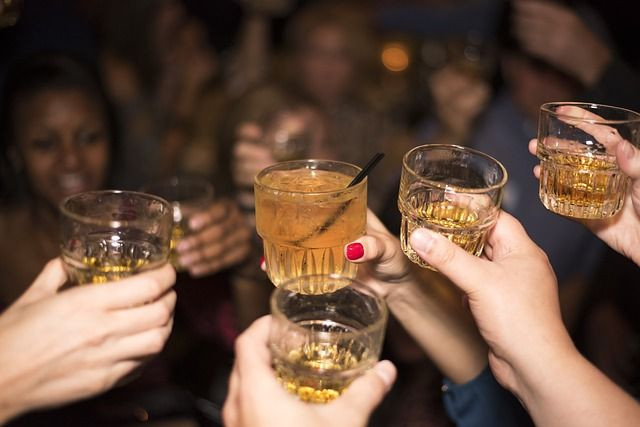How Drunk Am I? Your Perception Of Intoxication May Depend On The People Around You

A new study has suggested it may not be what you drink but rather who you drink with that affects your perceived level of intoxication. According to the research, when we are drunk and surrounded by other drinkers, our judgements of our own intoxication and the associated risks are related to the drunkenness of our peers, not on how much we believe we consumed.
When we are drunk and in a drinking environment, our perception of our own drunkenness, how much we will drink, and the long-term health implications of our drinking behavior is ranked in comparison to the people around us. For example, people were more likely to underestimate their own level of drinking, drunkenness, and the associated risks when surrounded by others who were intoxicated, but felt more at risk when surrounded by people who were more sober.
"Researchers have historically worked under the assumption that those who drink most alcohol incorrectly 'imagine' everyone else also drinks to excess,” corresponding author Simon Moore said in a recent statement . “It turns out that irrespective of how much someone has drunk, if they observe others who are more drunk than they are, they feel less at risk from drinking more."
For the study, researchers tested the breath alcohol concentration (BrAC) of 1,862 individuals selected from different social groups who were on average 27 years old. The volunteers were observed were between 8pm and 3am on Friday and Saturday evenings in four locations near large numbers of premises that served and sold alcohol. The individuals were split into eight reference groups — one group for each gender in each location, and individual BrAC levels were ranked within each reference group. Of the original 1,862 volunteers, an additional 400 were asked questions such as: "How drunk are you right now?" "How extreme has your drinking been tonight?" "If you drank as much as you have tonight every week how likely is it that you will damage your health / get liver cirrhosis in the next 15 years?"
Results showed that on average, people perceived themselves as moderately drunk and moderately at risk, although their BrAC exceeded standard US and UK drunk driving limits. However, their judgement of their own intoxication and the dangers associated with drinking were largely reflective of the intoxication of those around them. The team suggested that these results reflect a possible way to help the public practice safer drinking habits.
“This has very important implications for how we might work to reduce excessive alcohol consumption,” corresponding author Simon Moore said in a recent statement. “We could either work to reduce the number of very drunk people in a drinking environment, or we could increase the number of people who are sober. Our theory predicts the latter approach would have greatest impact."
Source: SC Moore, AM Wood, L Moore, J Shepherd, S Murphy, GDA Brow. A rank based social norms model of how people judge their levels of drunkenness whilst intoxicated. BMC Public Health. 2016
Read More:
What Causes Alcoholism? Malfunctioning Enzyme Leads People To Binge Drink More Than Others: Read Here
Binge Drinking Causes: Brain Mechanism Study May Lead To Alcoholism Treatment: Read Here
Published by Medicaldaily.com



























